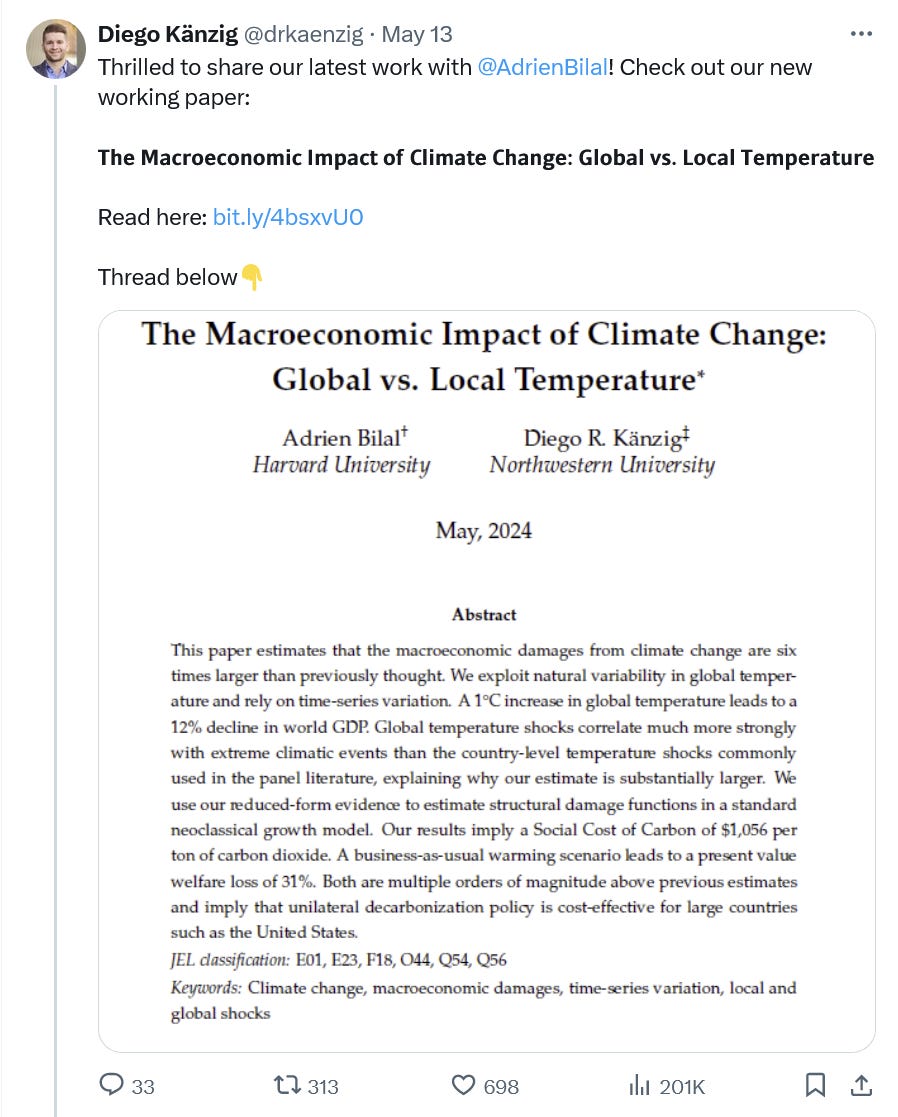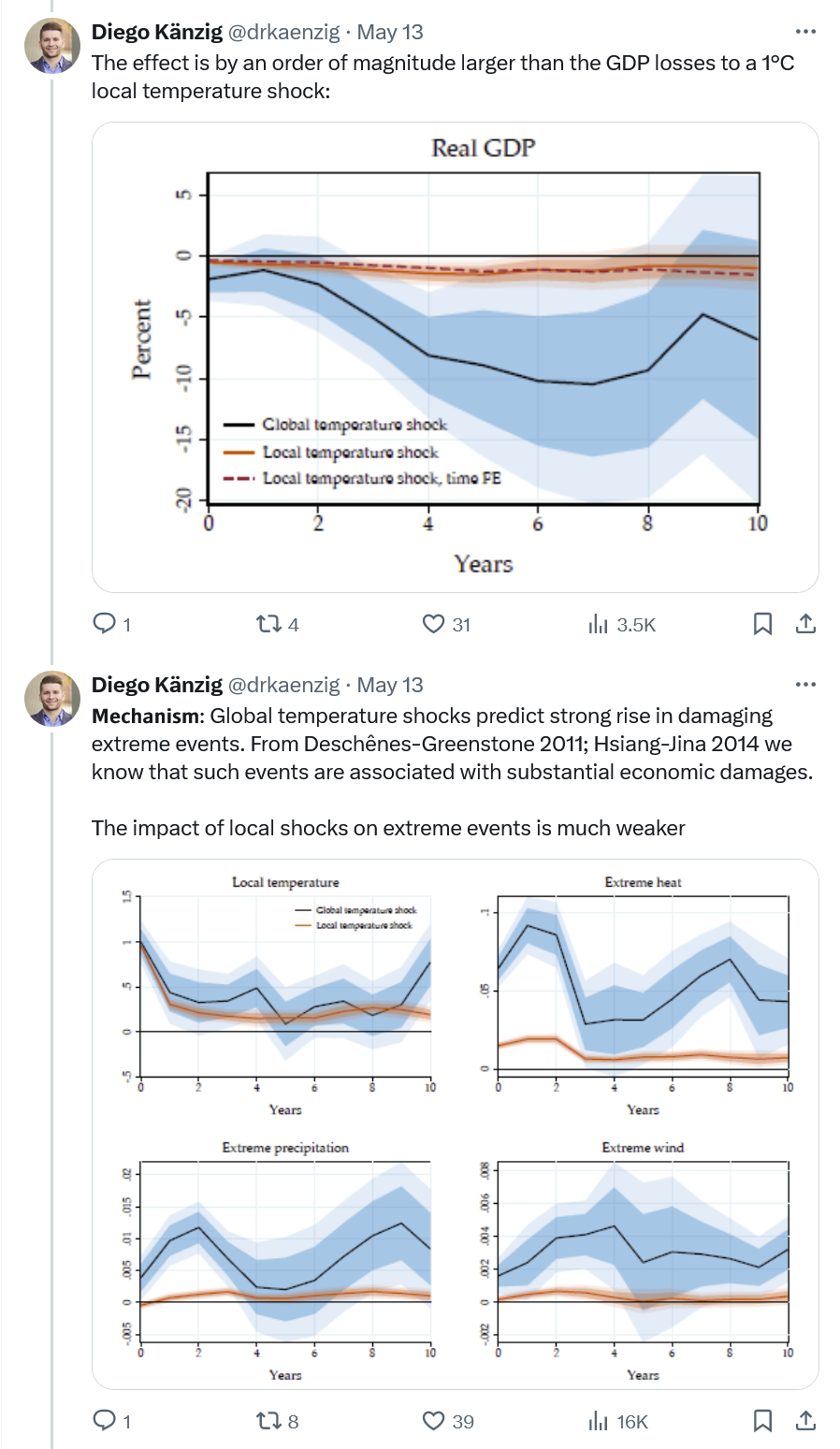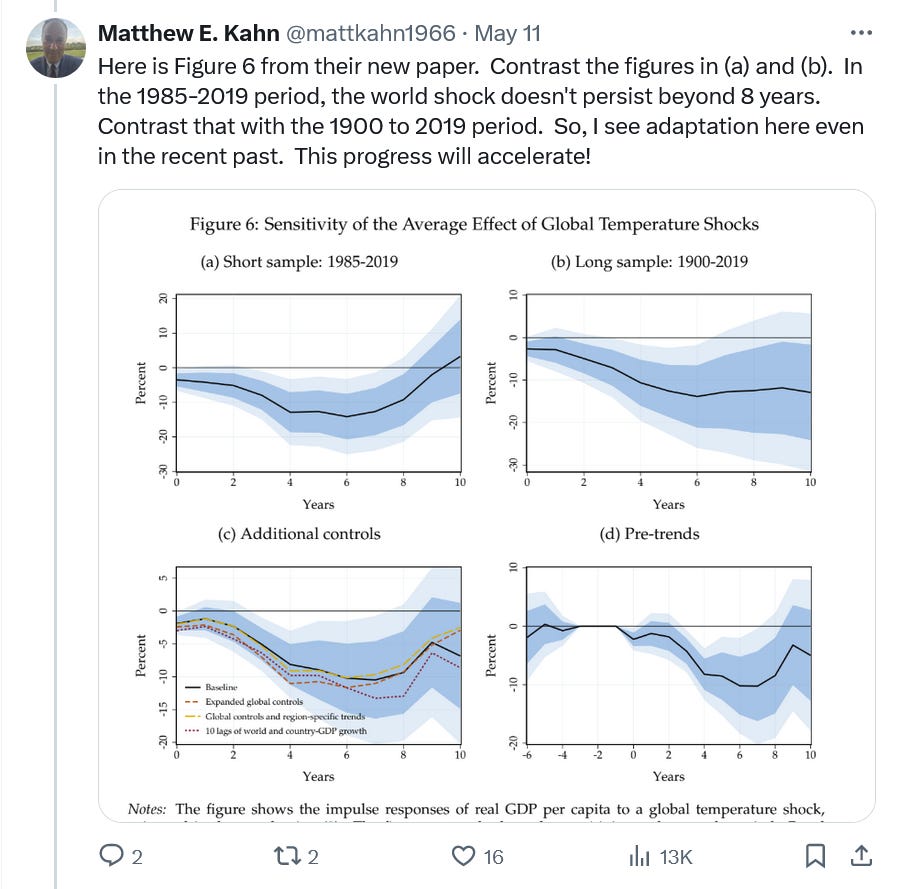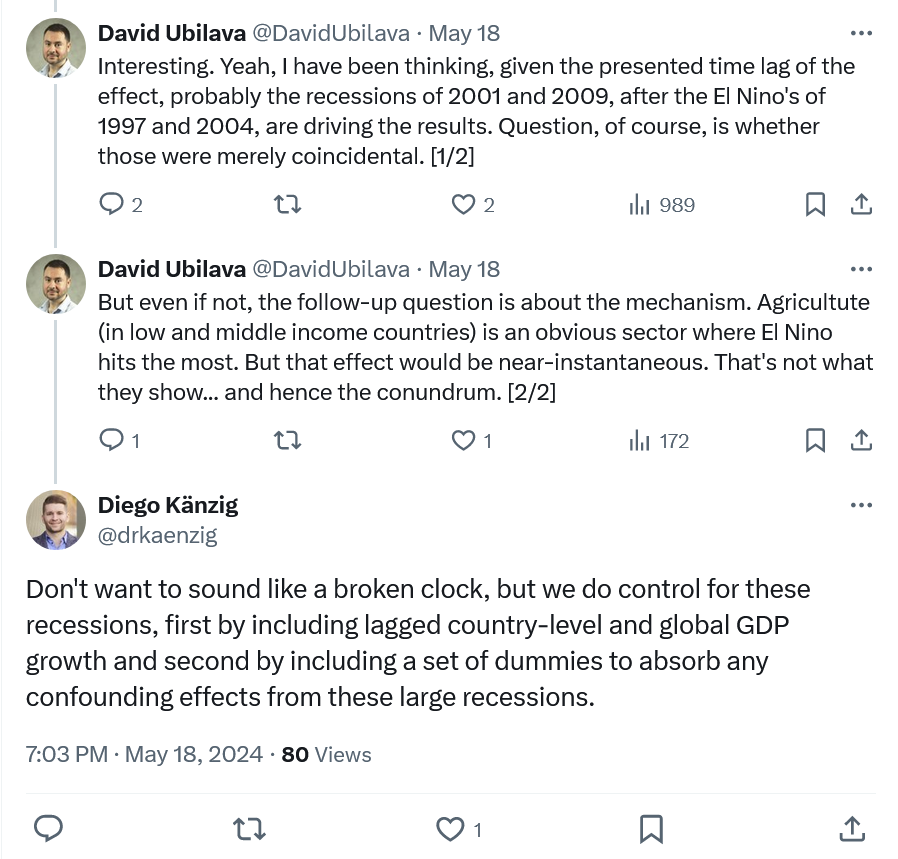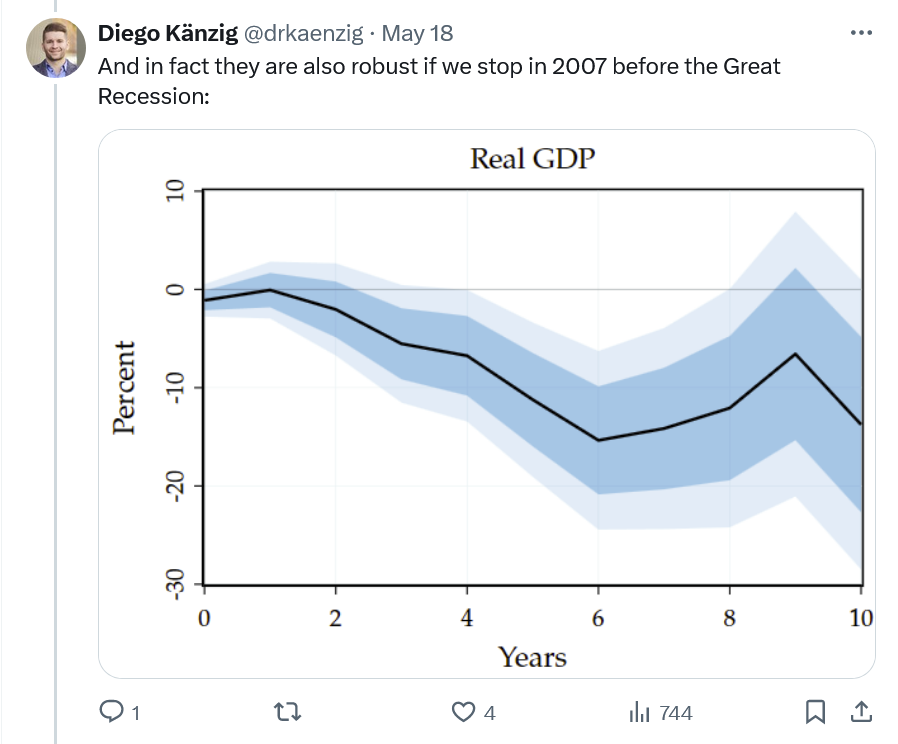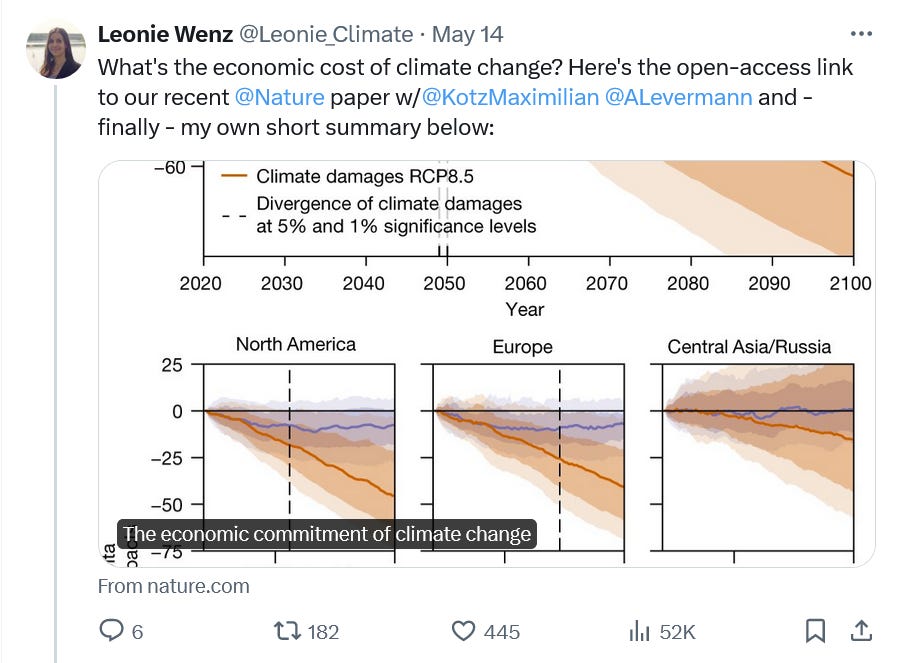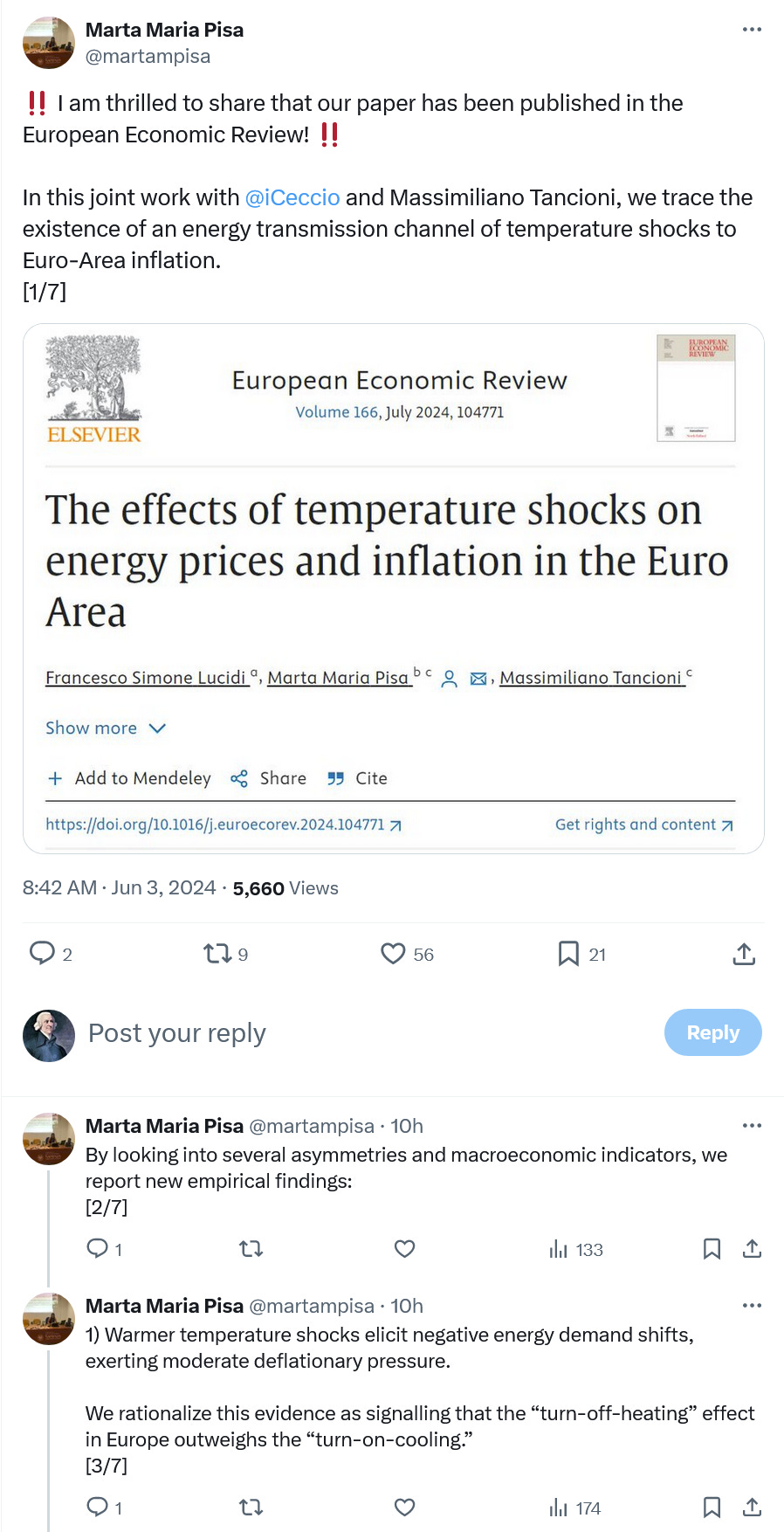Best of #econtwitter - The macro impact of climate change, special supplement
This paper provoked a lot of discussion so it gets a special supplement:
𝗧𝗵𝗲 𝗠𝗮𝗰𝗿𝗼𝗲𝗰𝗼𝗻𝗼𝗺𝗶𝗰 𝗜𝗺𝗽𝗮𝗰𝘁 𝗼𝗳 𝗖𝗹𝗶𝗺𝗮𝘁𝗲 𝗖𝗵𝗮𝗻𝗴𝗲
^full thread has some more details, it’s extremely clear
To give a sense of how large these numbers are:
Very important for interpretation: these shocks are persistent —
^in other words. You might have been wondering “why is the impact of the temperature shock on GDP so delayed” in the main results figure; well, part of the answer is that the shock itself is not only (or even mostly) occurring at t=0
But also do note the shock is not fully persistent
One set of responses was along the lines of “this doesn’t capture adaptation”:
but:
and importantly:
^going back to my previous point, though — these shocks are not fully persistent, so “the historical degree of adaptation” might not be representative of the degree of adaptation to a fully persistent temperature shift caused by climate change. (I’ll install AC in my house if every summer is going to have extreme heat, but it’s not worth installing if it will only be really hot for one week.) No idea if this is quantitatively important though!
Another thing you might be worried about, but:
An extended back and forth here with some attempted pushback but nothing really sticks IMO; same with this post from a climate scientist. Matthew Kahn post
Another relevant thread:
Kudos to the authors for the active twitter engagement


